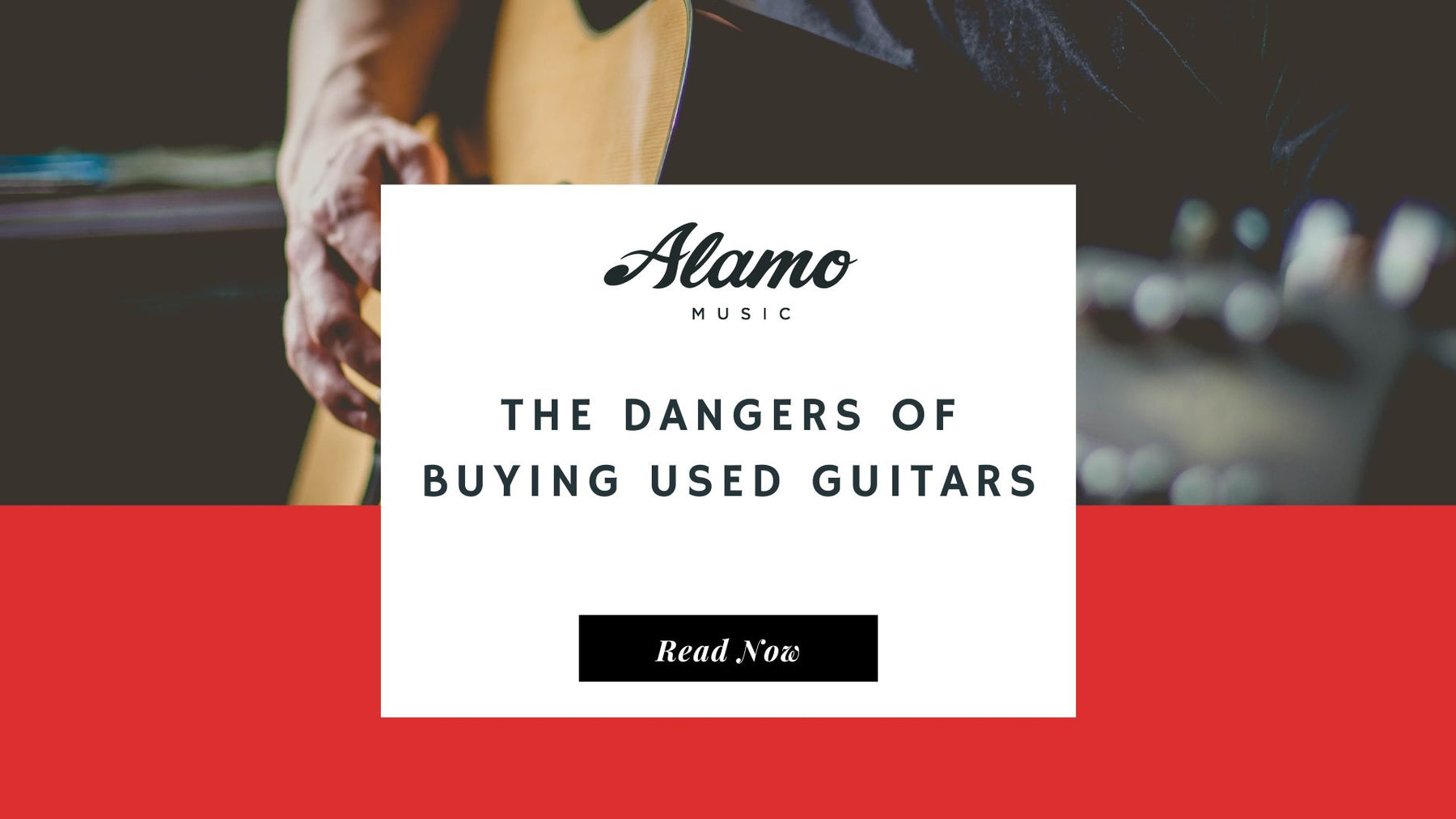
The Dangers of Buying Used Guitars
Buying a used guitar can be an exciting venture, offering the allure of vintage charm and potential savings. However, as Chris discovered firsthand, it can also come with its fair share of challenges. In this candid discussion between Cooper and Chris, we explore the nuances of purchasing used gear, from identifying common issues to deciding whether to tackle repairs yourself or seek professional help.
Identifying Issues:
Chris's experience with his used ES-335 serves as a valuable lesson for aspiring guitar buyers. It's not uncommon for used guitars to come with a few quirks or even significant issues. From electronic malfunctions to structural damage, the range of potential problems can be vast.
One of the first steps in assessing a used guitar is to thoroughly inspect it for any visible signs of wear or damage. Cracks in the body, neck warping, and fret wear are all red flags that warrant closer inspection. Additionally, pay attention to the instrument's playability—uneven frets, buzzing strings, or tuning stability issues could indicate underlying issues.
DIY vs. Professional Repairs:
Once you've identified any issues with the guitar, the next question is whether you're equipped to address them yourself or if it's best to enlist the help of a professional guitar technician. Minor repairs, such as replacing a broken string or tightening loose hardware, can often be tackled by DIY enthusiasts with the right tools and knowledge.
However, for more complex repairs or issues requiring specialized expertise, it's advisable to seek the services of a skilled technician. Electrical problems, intricate setup adjustments, or structural repairs are areas where professional intervention may be necessary to ensure the integrity and longevity of the instrument.
Navigating Deal-Breakers:
Not all issues with a used guitar are created equal. Some may be minor inconveniences that can be easily remedied, while others could signal serious underlying issues that may ultimately lead to regrettable purchase decisions.
As Cooper and Chris discuss, it's essential for prospective buyers to weigh the severity of any identified issues against their own preferences and priorities. While minor cosmetic flaws or setup adjustments may be acceptable compromises for some, significant structural damage or irreparable defects could be deal-breakers that justify walking away from a purchase.
Overall, Chris's experience with his used ES-335 serves as a cautionary tale for guitar enthusiasts embarking on the journey of buying used gear. By understanding the potential pitfalls and knowing what to look for, buyers can make informed decisions that minimize the risk of disappointment or regret.
Whether you're a seasoned musician or a novice enthusiast, the guidance offered by Cooper and Chris underscores the importance of diligence and discernment when navigating the world of used guitars. So, before making your next purchase, take heed of their advice: know what you're getting into, and don't be afraid to seek expert assistance when needed.
In the market for a new or used guitar? Get help from the experts and find your perfect guitar at Alamo Music Center today!
